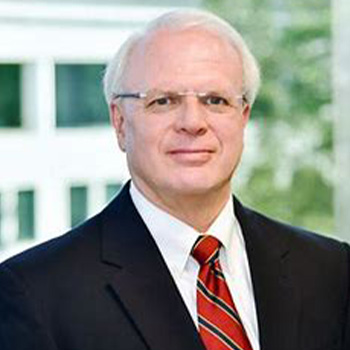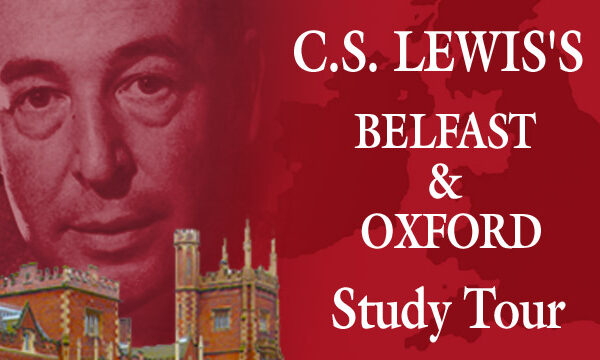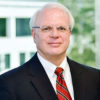Back to series



The Subtle Power of Evil and God's Antidote
Click here to open a Print - Friendly PDF
That is your paradigm of the world? Whatever it is, your worldview provides the lens through which you see this world. It determines how you evaluate and give meaning to people and events. In this post-modern world, we are bombarded with a myriad of paradigms. Which one is true? Or, as many will say, there is no one true paradigm; instead, we should simply find a paradigm that fits and, if necessary (or, in some cases, if just convenient), change that paradigm to suit our changing needs or the latest fad.
The biblical paradigm is not in vogue these days, but the ultimate question is not what is popular, but what, if anything, is true. Ironically, to say that there is no ultimate truth, or that all truths about and roads to God are equally valid, is to still make an ultimate truth claim. So why examine the Christian faith as a possibility? C. S. Lewis, in his inimitable way, put the matter quite succinctly in God in the Dock: “Christianity is a statement which, if false, is of no importance, and, if true, of infinite importance. The one thing it cannot be is moderately important.”
The biblical paradigm of the world is one where God is not only Creator of the universe, but a personal Being who acts within historical events and in the individual lives of men and women. Moreover, as set forth in Ephesians 6, ours is a world engaged in a cosmic, spiritual battle between the forces of good and evil.
An invisible spiritual world is the antithesis of the modern day emphasis on materialism, empirical evidence, and human reason. And yet, every Sunday millions of Christians around the world recite in the Nicene Creed that “we believe in all that is, seen and unseen.” I have often struggled with this notion of spiritual forces at work in this world. An epiphany moment occurred when I stumbled upon a story told by Jostein Gaarder in The Solitaire Mystery, where he writes:
A Russian cosmonaut and a Russian brain surgeon were once discussing Christianity. The brain surgeon was Christian, but the cosmonaut wasn’t. “I have been in outer space many times,” bragged the cosmonaut, “but I have never seen any angels.” The brain surgeon stared in amazement, but then he said, “And I have operated on many intelligent brains, but I have never seen a single thought.”
My thoughts are as real to me as the chair in which I sit. As soon as I read this, I understood the spiritual world in a way that finally made sense.
What is the biblical paradigm of human beings? It is a complex, seemingly paradoxical view. On the one hand, we are told in Genesis that we are created by God in His image; Psalm 8 says that humans are considered just below angels and even God. Yet, Jeremiah tells us that the human heart is “desperately wicked,” and Saint Paul reminds us that “all have sinned and fall short of the glory of God.” Thus, we humans are seemingly caught in the paradox of being immeasurably loved by God and yet separated from Him through sin. Moreover, this view of humanity points to the importance of our spiritual, as well as our physical, reality. As the French philosopher, Pierre Teilhard de Chardin, once wrote, “We are not human beings having a spiritual experience, we are spiritual beings having a human experience.”
This brings us to consider the nature of sin and evil. Amazingly, one of the deepest and most complex mysteries of the human condition is described in a mere seven verses in the third chapter of Genesis:
Now the serpent was more crafty than any other wild animal that the LORD God had made. He said to the woman, ‘Did God say, “You shall not eat from any tree in the garden”?’ The woman said to the serpent, ‘We may eat of the fruit of the trees in the garden; but God said, “You shall not eat of the fruit of the tree that is in the middle of the garden, nor shall you touch it, or you shall die.”‘ But the serpent said to the woman, ‘You will not die; for God knows that when you eat of it your eyes will be opened, and you will be like God, knowing good and evil.’
So when the woman saw that the tree was good for food, and that it was a delight to the eyes, and that the tree was to be desired to make one wise, she took of its fruit and ate; and she also gave some to her husband, who was with her, and he ate. Then the eyes of both were opened, and they knew that they were naked; and they sewed fig leaves together and made loincloths for themselves.
This simple story of the fall of mankind begins the drama for the rest of human history – our sinful disobedience and God’s redemption. In the garden, sin and death mysteriously entered into our world, separating us from God and staining His creation. What is striking about this, however, is that the climatic event in the garden was not some dramatic, cataclysmic occurrence, but rather the consequence of subtle deception and half-truths. This story has dramatic implications for us today, not only in its depiction of our fallen human condition, but also in its warning that the danger often lies, not so much in overt recognizable evil, but in the seemingly innocuous, subtle illusions that draw us away from God.
The age-old conundrum is why would God allow evil? Could it be that God is either not all powerful or not all good? The simplest answer is to say this is a mystery we will never understand, which may well be the closest truthful answer. As George McDonald once wrote, “None but God hates evil and understands it.” Nevertheless, Lewis gives us an insight into why God took the risk of evil in the Garden of Eden: “Because free will – although it makes evil possible – is the only thing that makes possible any love or goodness or joy worth having.” God knew that meaningful, unconditional love cannot be coerced. Any parent can verify this: obedience and even hugs can be compelled from young children, but their freely given love is what truly matters.
It’s easy to talk about evil in the context of the Holocaust, or genocide, or war or September 11th, but the garden story in Genesis warns us not to ignore the equally dangerous and destructive power of subtle evil. That is the message of Lewis’s classic, The Screwtape Letters, where Screwtape tells us:
You will say that these are very small sins; and doubtless, like all young tempters, you are anxious to be able to report spectacular wickedness. But do remember, the only thing that matters is the extent to which you separate the man from the Enemy. It does not matter how small the sins are, provided that their cumulative effect is to edge the man away from the Light and out into the Nothing. Murder is no better than cards if cards can do the trick. Indeed, the safest road to Hell is the gradual one – the gentle slope, soft underfoot, without sudden turnings, without milestones, without signposts.
The problem with the gentle road is that, without signposts, we gradually draw away from God without meaning to and with little recognition of the path we are taking. It’s just as effective for the devil to take us on the gradual road as the sudden one, like the story that the best way to boil a frog is to put him in cold water and slowly turn up the heat. In our world today, the heat has slowly turned up such that gradually the moral standards of our culture have changed dramatically. It doesn’t take long in perusing a night of prime time television to realize we’re not in Mayberry anymore.
Many people want to ignore concepts like sin and instead to believe that humans are basically good, but that is not the biblical paradigm. When Lewis, once an atheist and intellectual snob, finally faced the reality of his own depravity, he observed, “For the first time I examined myself with a seriously practical purpose. And there I found what appalled me; a zoo of lusts, a bedlam of ambitions, a nursery of fears, a harem of fondled hatreds. My name was legion.”
But all this talk of sin and evil is heavy sledding. What is the antidote? The biblical answer is Good Friday when God balanced our spiritual accounts through Christ “to reconcile all things to Himself, having made peace through the blood of His cross.” Anyone who has seen Mel Gibson’s The Passion of the Christ will never forget the brutal images of His sufferings for us. Sin is not a trifling matter; it’s deadly serious to God.
Fortunately for us, the crucifixion is not the end of the story, and evil does not have the final word. As the narrator of A Prayer for Owen Meany says: “Anyone can be sentimental about the Nativity, any fool can feel like a Christian at Christmas. But Easter is the main event; if you don’t believe in the resurrection, you’re not a believer.” The resurrection is proof of God’s love and power. The ultimate biblical paradigm is one of hope, not despair. In the midst of sin and evil, we can rejoice that God has overcome evil and even death, and that through Christ, we too shall overcome them.
Several years ago, I participated in a renewal Kairos weekend in a maximum security prison in Alabama. After we returned, one of the prisoners wrote a letter to a friend of mine. The prisoner described the essence and wonder of the Christian gospel as well as I have ever seen it.
I have life without parole. I may never see the outside again, but Jesus Christ lives in my heart and I have eternal life with Him and I’m freer now than I’ve ever been in my life. All my sins were forgiven when I received Jesus Christ. He’s made me a new creature...I add this, if we never see each other on earth again, one day we’ll rejoice together in Heaven. God bless you.
I suspect that even the brilliant and articulate C.S. Lewis would applaud this simple, yet incredibly profound, summary of the transforming and eternal love of Christ.

Norman Jetmundsen
AttorneyNorman Jetmundsen, Attorney, was the vice president and associate general counsel for Vulcan Materials Company in Birmingham, Alabama. He is the author of The Soulbane Stratagem (a follow-on to C.S. Lewis’ The Screwtape Letters) and The Soulbane Illusion. Norman graduated from the University of the South, in Sewanee, Tennessee, where he majored in English literature. He then obtained his law degree from The University of Alabama. As a result of gaining a Rotary International Scholarship, he attended Magdalen College, Oxford, where he completed a M.Litt. in Law.

 COPYRIGHT: This publication is published by C.S. Lewis Institute; 8001 Braddock Road, Suite 301; Springfield, VA 22151. Portions of the publication may be reproduced for noncommercial, local church or ministry use without prior permission. Electronic copies of the PDF files may be duplicated and transmitted via e-mail for personal and church use. Articles may not be modified without prior written permission of the Institute. For questions, contact the Institute: 703.914.5602 or email us.
COPYRIGHT: This publication is published by C.S. Lewis Institute; 8001 Braddock Road, Suite 301; Springfield, VA 22151. Portions of the publication may be reproduced for noncommercial, local church or ministry use without prior permission. Electronic copies of the PDF files may be duplicated and transmitted via e-mail for personal and church use. Articles may not be modified without prior written permission of the Institute. For questions, contact the Institute: 703.914.5602 or email us.
-
Recent Podcasts
A Welcome Change in Apologetics
by Randy Newman, Aimee Riegert on April 19, 2024We’re burdened for our friends who don’t know...Read More
-
Questions That Matter Podcast – Samuel James and Digital Liturgies
by Samuel James, Randy Newman on April 19, 2024
-
The Side B Stories – Dr. James Tour’s story
by Jana Harmon, James Tour on April 12, 2024
-
Recent Publications
Isn’t Morality Relative?
by Christopher L. Reese on April 1, 2024It is widely accepted in the Western world...Read More
-
Do Muslims and Christians Worship the Same God?
by Andy Bannister on March 1, 2024
-
Artificial Intelligence and Its Impacts on Humanity
by John Lennox on February 13, 2024
0
All Booked
0.00
All Booked
0.00
All Booked
20599
GLOBAL EVENT: 2024 Study Tour of C.S. Lewis’s Belfast & Oxford
https://www.cslewisinstitute.org/?event=global-event-2023-study-tour-of-c-s-lewis-belfast-oxford-2&event_date=2024-06-22®=1
https://www.paypal.com/cgi-bin/webscr
2024-06-22

Next coming event
Days
Hours
Minutes
Seconds
GLOBAL EVENT: 2024 Study Tour of C.S. Lewis’s Belfast & Oxford
On June 22, 2024 at 12:00 pmat Belfast, Northern Ireland & Oxford, EnglandCategories
Speakers

Norman Jetmundsen
Attorney
Team Members

Norman Jetmundsen
AttorneyNorman Jetmundsen, Attorney, was the vice president and associate general counsel for Vulcan Materials Company in Birmingham, Alabama. He is the author of The Soulbane Stratagem (a follow-on to C.S. Lewis’ The Screwtape Letters) and The Soulbane Illusion. Norman graduated from the University of the South, in Sewanee, Tennessee, where he majored in English literature. He then obtained his law degree from The University of Alabama. As a result of gaining a Rotary International Scholarship, he attended Magdalen College, Oxford, where he completed a M.Litt. in Law.





